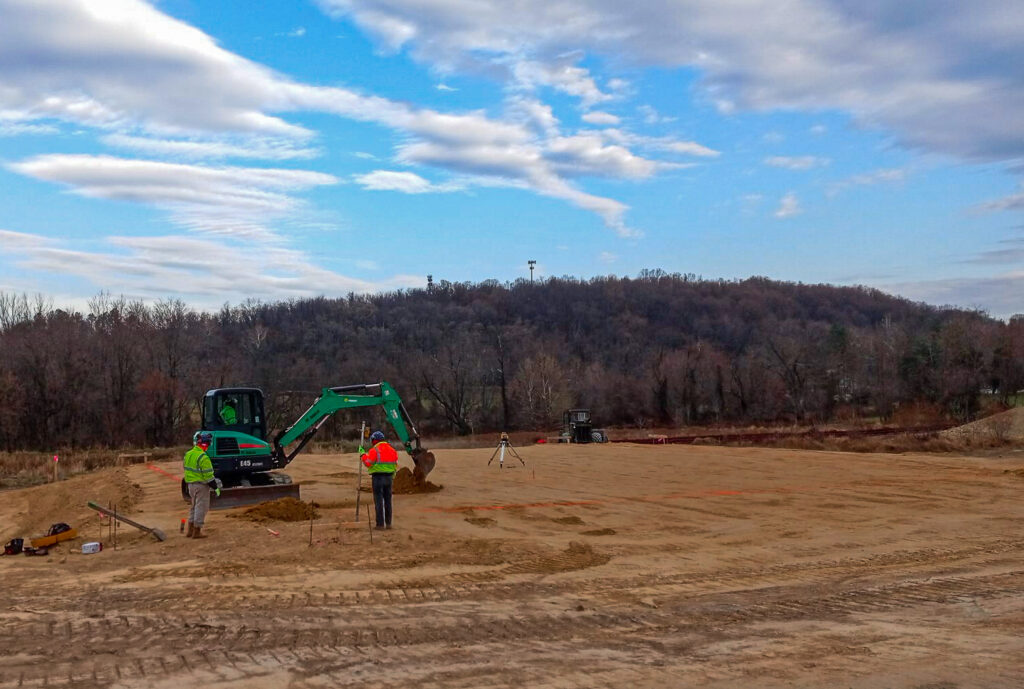You’ve spent years dreaming, researching, learning, drafting business plans, gathering funding, drawing up plans, permitting, interviewing contractors, and making sure everything’s in place for your new construction project. Now, it’s time to sign on the dotted line with that contractor so work can get started.
Before you do, be sure to check the contract you’re signing, so it includes all the important items to protect yourself, your project, and your contractor should anything happen. If any of these items are missing or not favorable, consider renegotiating.
Remember, good contracts make for good projects. Here are the 7 things your contract for commercial contracting services should include, at bare minimum:
The Scope of Work
You can’t have an agreement for work to be done without defining what that work is!
This section outlines exactly what you and your contractors’ responsibilities are for the project, so everyone knows when something is and isn’t within the scope of the contract. This minimizes disputes, delays, confusion and ultimately protects you so you don’t get charged extra for an item that should have been included. Inversely, it protects the contractor from being asked to do extra work for free.
You’d like to think that the initial quote for the work is all that the project will cost, but the reality is you may change your mind on something, want to add an element, or the contractor may uncover a concealed condition after the work starts. Change orders are common on construction projects, and the process should be common as well. Add a clause in the agreement that details how changes are agreed to, as well as the contractor’s hourly personnel rates associated with the project and allowable percentage of markup for overhead, insurance and fee on subcontract costs, equipment, and materials.
A List of Contract Documents
Often referred to as “plans” or “blueprints,” it might seem obvious that your contract documents and specifications are included in your contract. Still, it’s important to record all documents specific to your project. Consider that during the bidding or permitting processes there may have been a few rounds of revisions to plans, addenda, specification clarifications, RFI’s, and more. You want your contract to reflect the most up-to-date data so that everyone involved is working off the correct documentation. Here’s a list of key items you should include:
- Most recent set of construction drawings
- Most recent specifications
- Exhibits – these may include:
- The final contractor’s bid proposal – with any qualifications, allowances, or unit costs to the bid
- Insurance or bonding requirements may come from one or a combination of the following: your insurance carrier, financial institution, or landlord if you are leasing the property
- Payment application
- Waivers
- Special Safety Requirements
- Rules and regulations for construction
A Schedule
No one likes to get all excited to have a project finished only to see the scheduled opening date blown by poorly managed contracting services.
Both you and your contractor have dates that need to be met.
You are relying on your contractor to finish up their portion of the work so you can bring in furniture, merchandisers, staff, and paying customers. Your contractor needs to know the overall deadline by which all this work must be completed and the necessary milestones along the way so they can order supplies, maintain necessary staffing levels, and schedule different phases of your project without delays.
Even if a full bar chart CPM (critical path method) schedule has not yet been developed, a baseline schedule outlining substantial and final completion dates should be included. Your contract should stipulate that the contractor provide a detailed schedule within a specific period of time and must include all the important deadlines for your project, for example:
- Submittal and materials ordering timelines, including identifying long lead items
- Mobilization of the physical work
- Dates different phases of work need to be completed, including critical progress inspections
- Date for total project completion
The Payment Terms
Along with the payment method, your contract should include due dates for each payment.
Are your invoices due immediately upon receipt, or are they NET 30 from receipt? Does the Architect review the payment applications against the schedule of values to ensure that the cost requested coincides with the work that was completed? What happens if you forget and go past a payment due date? Is there a late fee? Does work stop on your project until your invoice is paid in full or other penalties for loss of financing?
In addition to the numbers, your contract should include how your contractor will be paid, with a standing day of the month that pay apps or invoices are expected to be received. This way, you know how and when your contractor wants to be paid so you can plan accordingly.
Historically, money is the biggest source of contention on a construction project, so this information should be spelled out in your contract in detail so there is no confusion over payments.
Construction Lien Law Protection
In many states, if your contractor doesn’t pay the people they hire. For example, employees, subcontractors, and material vendors – these groups can, within a certain time, put a lien against the property for non-payment.
Liens or even the threat of liens can be costly and difficult to manage. If not properly addressed, liens can result in the property being suspended from refinancing, suspended from a sale, or worse, to satisfy the unpaid debts. This can also cause complexity for future financing.
Your contract should include a stipulation that protects you from liens in exchange for payments. This documentation can reduce or eliminate your risk of being party to lien filings should they arise because of non-payment.
Good contract practice would be to have the contractor provide a list after a set period of all parties providing labor or materials and requiring the contractor to provide lien release affidavits notarized from these parties at each progress and final payment.
License Number
Always work with a licensed contractor to protect yourself.
Your contractor should include their state license number somewhere on the contract, so be sure to look for it. If it isn’t included, find a licensed contractor to do the work, no compromise.
Disputes & Termination
While you don’t want to think about it happening, disputes do sometimes arise during a commercial construction project.
Your contract should include information on how such disputes should be handled, such as whether they should be arbitrated or head straight to court for litigation. If one party doesn’t uphold their end of the contract, such as your contractor refusing to perform contracted work or you failing to pay a bill, the contract can be terminated.
All contracts should contain a section about the process of how disputes should be handled, as well as any information on termination of the contract by one or both parties must be included.
If you have any questions or need assistance drafting your contract, we provide a free initial consultation and expert preconstruction and contracting services to developers, owners, tenants, general contractors, sub-contractors, trades, vendors, and suppliers.
Here are industries best two organizations to obtain information, resources, and standard contract templates for your next project:
Commercial Contracting in Maryland & Beyond
At Contour Construction, we take pride in providing exceptional quality of work paired with above-and-beyond customer service. Whether you need someone to handle one portion of your commercial construction project or the entire process, our team has what you need to get your new venture up and running, on time, and within budget. Contact us today to discuss your project!
#BUILDINGDESTINATIONS




